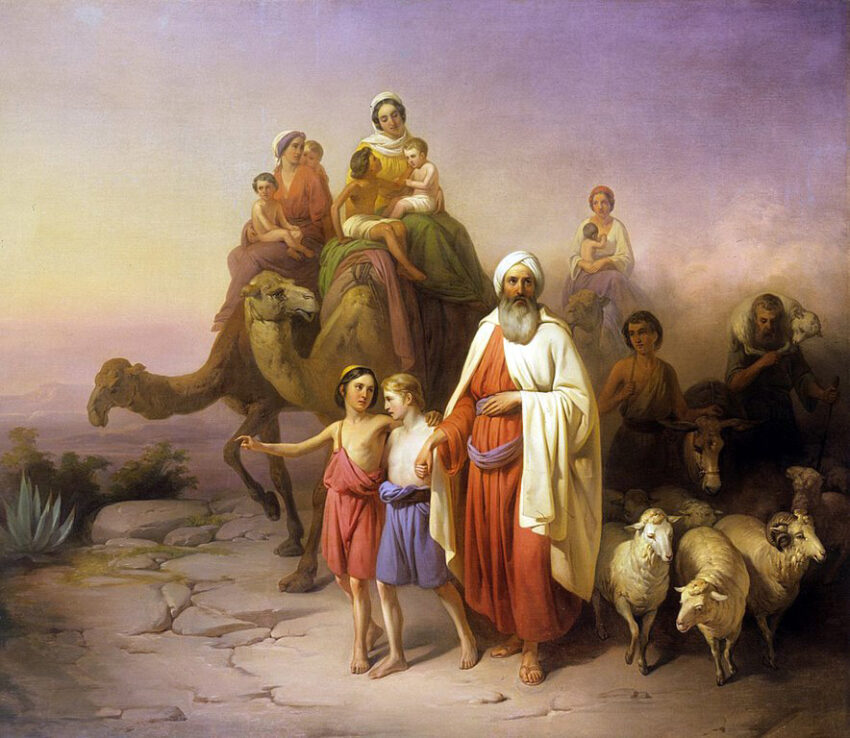by Frank Luke
Sermon Introduction
C.S. Lewis, known best for his fantasy writing of Narnia, once said, “Faith is the art of holding on to things in spite of your changing moods and circumstances.” He knew what he was talking about. In his life, he had searched for peace of mind which atheism had never given him. He imagined that he could think his way through all the world’s problems. Except he couldn’t.
Inside, he had the largest hole in his heart. He had come to believe that God exists, but he had no faith in God. He continued on in his life.
The night he converted, he did so because he had finally admitted that since Jesus had risen, Lewis needed to declare him Lord. Lewis expected to be a dreary Christian, having to give up things he loved like port wine. He expected this because so many Christians he knew were like this.
However, when he rose from his knees after that first prayer of true, deep-felt faith, he found great joy. You see, he had known joy only a few times in his life. Oh, he had been happy and laughed aplenty, but joy was never his constant companion. Until salvation. From that time, he felt the peace and joy so rare to find.
The joy served him well, and, even through tragedy, he retained that joy that came from faith.
Scripture Introduction
What is faith? Hebrews 11:1 tells us “Faith is the substance of things hoped for and the evidence of things unseen.” The chapter then continues listing people of God who waited in faith to see the glory of God revealed. One of those was Abraham, which Hebrews 11 says this of him:
Hebrews 11:8-10 8 By faith Abraham, when he was called, obeyed by going out to a place which he was to receive for an inheritance; and he went out, not knowing where he was going. 9 By faith he lived as an alien in the land of promise, as in a foreign land, dwelling in tents with Isaac and Jacob, fellow heirs of the same promise; 10 for he was looking for the city which has foundations, whose architect and builder is God.
Hebrews comes to us from an unknown human author. But we know that God inspired it. All through Scripture, the promise of God has come, and all through Scripture, the faithful have clung to it.
God’s first promise came to Eve, after she and Adam took of the forbidden fruit. God promised that the Seed of the Woman would crush the serpent’s head. However, the Biblical character who lives waiting for a promise from God the most is Abraham.
By Faith, He Journeyed
Hebrews 11 8 By faith Abraham, when he was called, obeyed by going out to a place which he was to receive for an inheritance; and he went out, not knowing where he was going.
Genesis covers 20 generations in 11 chapters. The remaining 39 chapters of the book will cover only four. Abraham’s tale takes chapters 12-25, thirteen chapters. He’s important. From then on, he is the father of the nation of Israel. Every Christian and Jew considers himself to be a spiritual child of Abraham.
Abram’s tale begins in the city of Ur of the Chaldeans. The city of Ur lay near the connection of the Tigris and Euphrates rivers. Have you ever wondered what kind of life Abraham left behind there close to 2,000 BC? What was Ur like back then?
Estimates place the population of Ur at the time of Abraham, around 250,000. It was a wealthy city with a thriving middle class. Sumerian kings lived there among the wealthy. Trading caravans from as far away as India and modern-day Turkey came in and out of the city. The city produced architects, engineers, jewelers, and agriculturists. In those days, this was the place to be!
Ur was wealthy and rich in material goods, but spiritually, she was destitute. Oh, the people thought she was rich that way, also, with a 150 foot pyramid and two temples at the foot. On top of the tower stood a temple to the moon god, Nanna. The writings of Ur have given lists of hundreds of gods worshiped in the city.
But with the worship of many gods came the grotesque rites of such worship. Many idols have been found, and Scripture tells us that Abraham and his father, Terah, had been idolaters while living there. God called Abraham out of this place.
The Bible records this call in Genesis 12. Genesis 12:1-4 Now the LORD said to Abram, “Go forth from your country, And from your relatives And from your father’s house, To the land which I will show you; 2 And I will make you a great nation, And I will bless you, And make your name great; And so you shall be a blessing; 3 And I will bless those who bless you, And the one who curses you I will curse. And in you all the families of the earth will be blessed.” 4 So Abram went forth as the LORD had spoken to him; and Lot went with him.
Abraham had all the riches he ever needed with his flocks and herds, but he lacked an heir. When the call came, Abram was 75 years old and his wife 65. Sarai was barren, but God promised them that the land would be given to their heir.
Abram left the big city to dwell in tents because he believed what God had said. He had no reason to follow God, but he did. Abraham packed up his family and possessions and traveled 1,300 miles.
By Faith, He Lived
 Hebrews 11 9 By faith he lived as an alien in the land of promise, as in a foreign land, dwelling in tents with Isaac and Jacob, fellow heirs of the same promise;
Hebrews 11 9 By faith he lived as an alien in the land of promise, as in a foreign land, dwelling in tents with Isaac and Jacob, fellow heirs of the same promise;
Abram left his home of comfort, where he was probably a big shot considering his wealth, and choose to go into a foreign land. He didn’t know where he was going. God didn’t tell him, “I send you to Canaan.” God said, “Go until I tell you to stop.”
Abraham went. Abraham traveled up the Euphrates river to Haran and then down into Canaan.
Besides his travels, Abraham lived in his faith. God promised him a son through Sarah. Sarah was barren most of their life together. God promised that he would be the father of nations. With Sarah, he had one child. Likewise, God promised that Abraham’s descendants would inherit the land, but Abraham lived as a wanderer the rest of his life. He lived near cities, but always in tents.
The same promises are made to Isaac, Jacob, and Joseph. God focuses on one family and then on one part of a large family.
Can you imagine. In this day, we live in houses and settled. Very few people spend their lives wandering around. In Abraham’s day, nomads were more common, but I can’t imagine never having a place to call home.
Abraham had to learn a new language in Canaan. Canaanite and his native Aramaic were similar languages, about as alike as Italian and Spanish. The change would still take time.
Abraham’s time in Canaan would involve the almost sacrifice of Isaac and treaties with nearby kings. It would also involve the time of Hagar and Ishmael. Both Isaac and Ishmael became fathers of nations. God’s promises came to pass, but not all of them in Abraham’s life time.
Abraham never gave up. He lived in a land that was not his home, waiting for God’s promises to come to pass.
By Faith, He Looked
Hebrews 11 10 for he was looking for the city which has foundations, whose architect and builder is God.
Abraham never settled, always looking for the city and the promise. The promise of God is the focus of the Bible. As I said, the first promise from God was to Eve, that her seed would crush the serpent’s head. The promise to Abraham comes about as part of that promise. Through Abraham would the promised seed come. Imagine, being told that you will be part of the promised line to crush the serpent!
This promise from God became the foundation of the covenant with Abraham. That covenant was expanded into the covenant with Israel and then renewed through Jesus to all who would take of it. The Promise of God works through covenants.
The people of the Old Testament liked to tell stories to describe theology. This is what we learn about God from the life of Abraham.
-
- God is personal. He wants to be with people. On the other hand, the gods of Canaan were tied to places. God is the God of Abraham, Isaac, and Jacob. He is not the God of Shecum or of Beer-sheba. As Jesus said, He is the God of the living not the dead.
- God can take anyone out of any circumstance. Joshua 24:2f tells us that Abraham was an idolater before God called him. A very old story tells us that Abraham was not only an idolater but he and Terah carved idols to sell.
- In Abraham’s time, there were no priests of God, and we see no prophets except him. Abraham follows no feasts or fasting times. Never once does Abraham show us a religious ritual. God is known to Abraham in relationship over ceremony.
- God likes to make covenants. A covenant establishes a relationship by choice. Two people who are not kin choose to become kin. Relationships come from nothing to something.
Are you in covenant with God? You can be. Abraham changed his life at the call of God. He became what He could not be, what he never imagined being.
Conclusion
Abraham believed even when it seemed to be impossible and it was counted to him as righteousness. What do we believe? Let us now take a moment to confess what we believe as Christians. Long ago, early in the church, new Christians were asked to recite specific wordings of their belief to show they were in agreement with the church. Later, the creed was restated in the form of questions. As I ask each question, you answer, “I do,” if you believe it.
Do you believe in God, the Father almighty, creator of heaven and earth?
Do you believe in Jesus Christ, his only Son, our Lord, who was born of the Virgin Mary, was crucified, died, and was buried, rose from the dead, and is now seated at the right hand of the Father?
Do you believe in the Holy Spirit, the holy Christian Church, the communion of saints, the forgiveness of sins, the resurrection of the body, and life everlasting?
This is our faith. This is the faith of the Church. We are proud to profess it, in Christ Jesus our Lord.
And all the people said, “Amen.”
Please visit Frank Luke’s blog where this article is also posted.

1 thought on “Faith: Where Promise Waits”